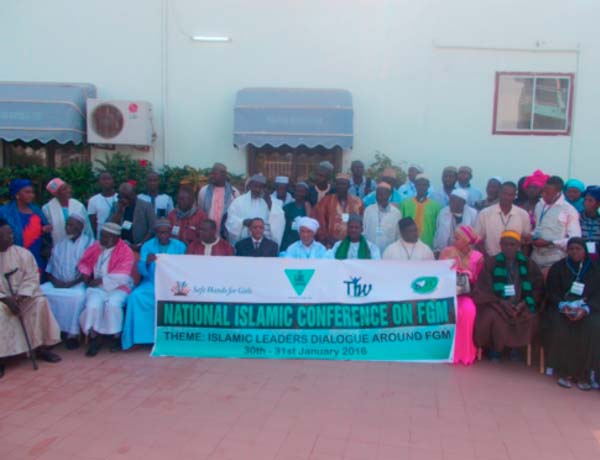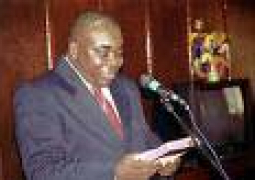
The statement was delivered on her behalf by the Deputy Executive Director of Women’s Bureau, Kajali Sonko, during the opening ceremony for a two-day National Islamic Conference on FGM held at the Paradise Suites Hotel in Kololi at the weekend.
The conference was organised by ‘Safe Hands for Girls’ in collaboration with ‘Think Young Women’ and Women’s Bureau on the theme: “Islamic leaders dialogue around FGM.”
The First Lady said in her statement that the issue of Female Genital Mutilation/Cutting (FGM/C) in The Gambia has evoked a lot of sensitivities from numerous quarters resulting in strong patriarchal resistance.
Consequently, she added, the fight against FGM/C and other harmful traditional practices in the country had been difficult, challenging and protracted.
“This executive decision calls for the amendment of the Women’s Act 2010 for the insertion in section 32 of the provision for the prohibition and criminalisation of FGM/C, in order to give effect to and enforce the constitutional right of women and children not to be subjected to practices that are harmful to their health and well-being.”
It would also give effect to the country’s international, regional commitments and obligations, she continued, adding that the National Assembly enacted the Women’s Amendment Act 2015 assented to by the President.
She informed participants that (FGM/C) is one of the main forms of harmful traditional practices that are deeply-rooted within Gambian culture, which continued to be accepted and practised widely.
She said according to the Multiple Indicator Cluster Survey (MICS) 2010, about 78.2 per cent of the women interviewed reported that they would like their daughters to undergo the practice.
She added that location, education, ethnicity and wealth are also important determinants of the type of people who practise FGM/C.
She gave the statistics of the FGM/C as follows: rural women 81.3 per cent were reported to approve of the practice compared to 61.5 per cent of their urban counterparts, while 78.5 per cent of women with no education are more likely to approve of the practice than their peers with secondary education of 59.0 per cent.
Women from the poorest households 75.1 per cent of whom approved of the practice, more than their richer counterparts of 50.2 per cent, she said.
She thanked all the stakeholders for working hard to sensitise all and sundry on this “harmful” practice; thus calling for the need to generate a common agreement among Islamic leaders/scholars in the fight against FGM/C in the country.
Jaha Dukureh, coordinator of ‘Safe Hands for Girls’, in her statement on the occasion,said her organisation is a survivor-led women’s rights body that aims to eradicate FGM and all other forms of gender-based violence through awareness-raising, advocacy, youth empowerment and community outreach.
“We have a vision where young women and girls will never again face the risks of any form of FGM, and survivors will be supported to deal with its harmful effects,” Jaha informed participants.
Other speakers at the ceremony were Chiekh Ould Zein from Mauritania, Chiekh Mohammed Ebrima Niass from Senegal and Sidi Alkali, Deputy Ambassador of Mauritania at the embassy in The Gambia.


